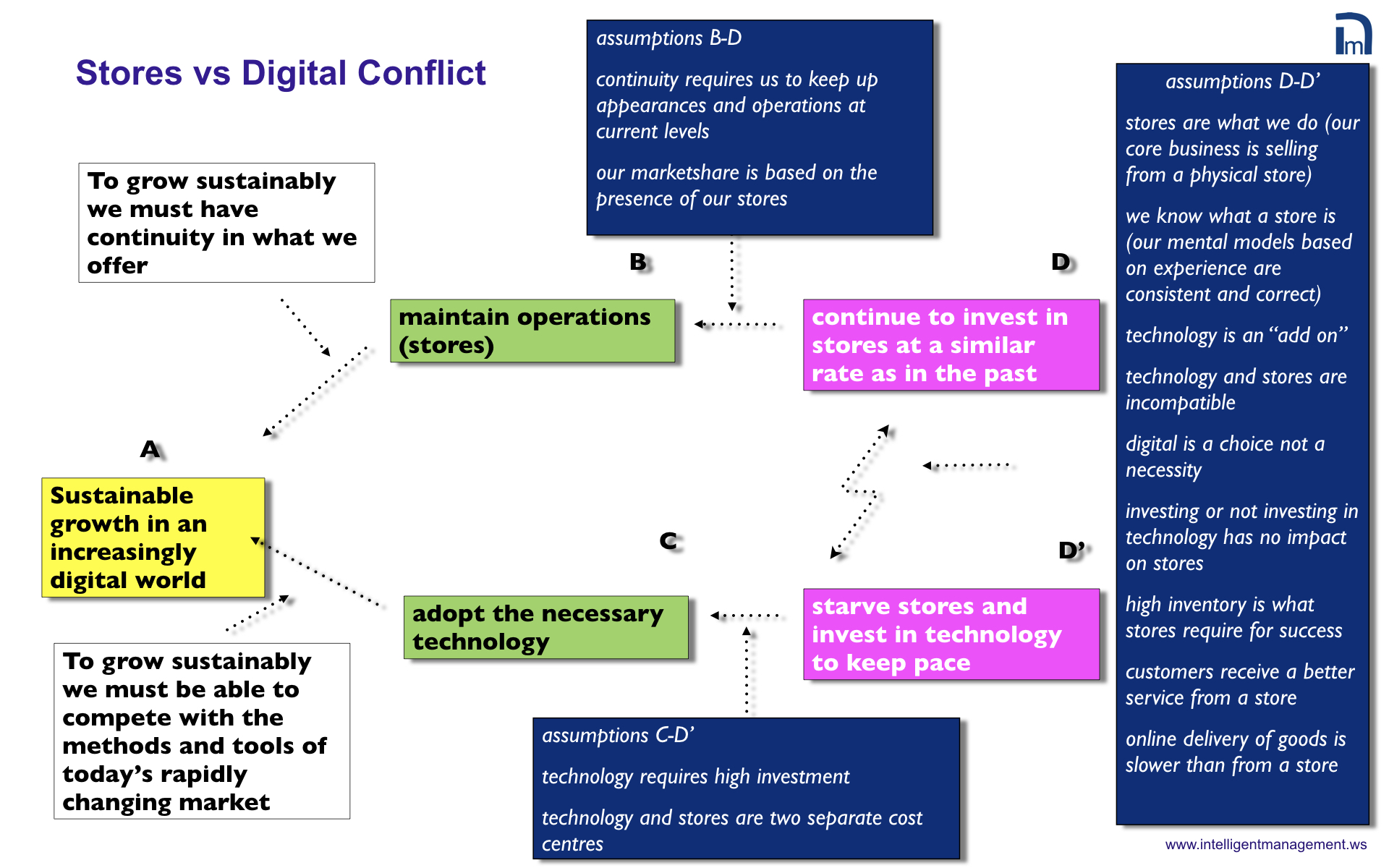The Wall Street Journal hailed the ‘Mr. Selfridge’ TV series as “addicting”. It elaborately tells the tale of Harry Selfridge, the American retail king of London who brought the department store to unprecedented success at the beginning of the 20th century. The Selfridges store remains today a hallmark of upscale London retail. But what would Mr. Selfridge think of Sears today?
Passion, innovation and meh…
Mr. Selfridge, in the TV series at least, stands out for his passion and daring innovation in running the store. Nothing is too bold and the customer must always be surprised and delighted. He came to mind in a visit to Sears on Saturday. The store is dull and tired looking, understaffed and the customer is left alone to peruse the limited stock.
Uninspiring is the word that most suits, both in variety and display. If the Sears store, one of the most iconic brands in North America, offers little in terms of a gratifying experience, why bother to go and not just order what you need from, say, Amazon?
Digitalization is eating the lunch of stores
The fact is, digitalization is taking over much faster than people think. Physical retail stores need to really challenge their thinking about what a physical store is and what it can provide in terms of experience, way beyond the merchandise it offers. There are tons of assumptions and mental models attached to such an ancient sector that need to be challenged to find new, breakthrough solutions. This pattern of surfacing assumptions and challenging them is one that can be learned.
Looking at mental models and assumptions
How can retail stores surface the assumptions they are making that are keeping them stuck where they are and not knowing the most effective way forward? The Conflict Cloud, one of the Thinking Process Tools from the Theory of Constraints, provides a structured way to dig down and use existing intuition and knowledge to find a breakthrough solution.
We’ve had a go at looking at what we believe are some of the major assumptions keeping retail stores stuck – see box below on the far right. The ability to challenge these assumptions, in our opinion, is what stands in the way of finding a successful formula for the future of retail. A key assumption is that investing, or not investing, in digitalization does not impact stores. Successful retailers are the ones who realize that digitalization not only promotes e-commerce but also sales in physical stores and that not investing in digital means not only giving up on e-commerce but, inevitably, reducing the success of physical stores.
The future of retail – entertainment and engagement
There was one excellent thing about my visit to Sears. The amazing Ellen at the checkout who was charming and effective. How many Ellens are there and is she enough to keep people coming back?
Physical shopping is more and more about entertainment and engagement. As someone who worked their Saturdays in Selfridges throughout her first degree, I am grateful to Selfridges for not just the job but the experience, education even, of being surrounded by such a fantastic range of goods that attracted visitors from around the globe. It inspired a sense of wonder and possibility, a window on the world. Sears, instead, just makes me wonder about its future.
Sign up to our blog here and shift your thinking towards broader, systemic possibilities for yourself and your organization.
About the Author
Angela Montgomery Ph.D. is Partner and Co-founder of Intelligent Management, founded by Dr. Domenico Lepore. She is co-author with Dr. Domenico Lepore and Dr. Giovanni Siepe of ‘Quality, Involvement, Flow: The Systemic Organization’ from CRC Press, New York. Angela’s new business novel+ website The Human Constraint looks at how the Deming approach and the Theory of Constraints can create the organization of the future, based on collaboration, network and social innovation.







Leave a Reply